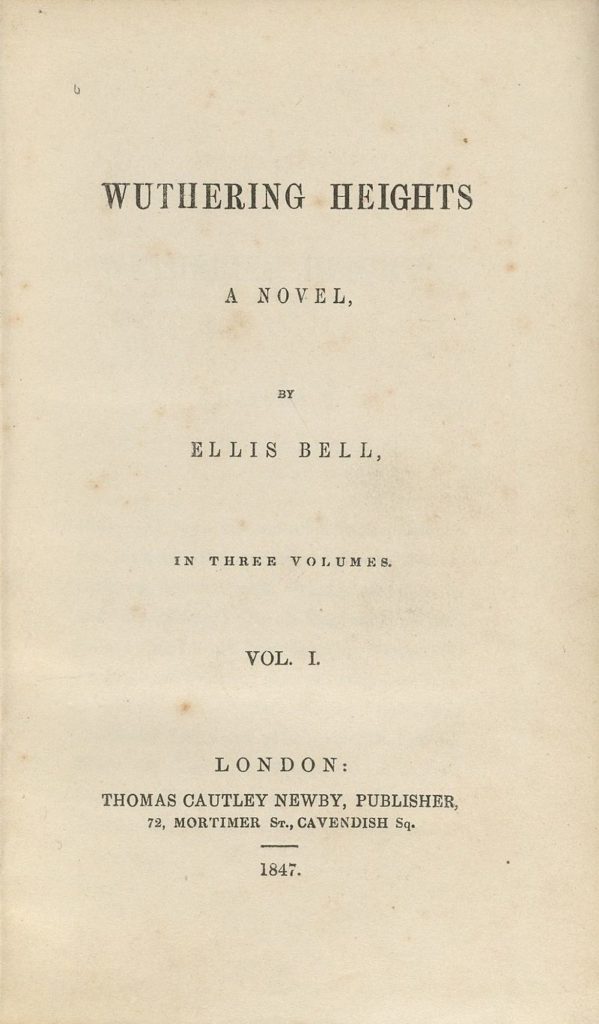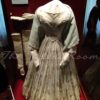How did people start to think that Wuthering Heights had not been written by Emily Brontë, but by her brother Branwell instead? This very widespread doubt arose for the first time in 1867, when inside the June edition of The Halifax Guardian, a very well known Yorkshire periodical, the writer and poet William Dearden wrote an article called “Who wrote Wuthering Heights?”. In this article Dearden bragged about having known Branwell Brontë in the 1840s, and moreover, stated that he spent an entire evening in the company of Branwell himself and of his sculptor friend Joseph Leyland in a pub not far from Haworth.
One month before the two poets had challenged each other to compose some verses about an episode happened previous to the Universal Deluge. On the day of the deadline (?), Branwell realised he had accidentally brought the wrong manuscript with him, instead of the poem he was due to bring. Dearden states that Branwell’s composition was

a rough, immature prose, where characters and themes were clearly recognizable in those of Wuthering Heights, the novel later on “presumptuously” attributed by Charlotte Brontë to Emily.According to the writer of the article, who wrote it a quarter of century after the episode and after Reverend Brontë’s death, it was impossible that a shy, antisocial girl with no experience of the world could imagine a “disgusting” character such as Heathcliff was. Even if in his article Dearden just instilled the doubt in his readers, having no real evidences to substain his thesis even back then, he insisted that what he heard on that night in 1842 was a prototype of Heathcliff’s character.
Since that moment on, every now and then during the following century there have been some recurring supporters of this theory according to which the real author of Wuthering Heights is Branwell Brontë. From Francis Grundy’s bography to Alice Law, who, in the 1920s ridiculously claimed, with weak proofs and old theories, that the novel might have been Branwell’s.
Even Daphne du Maurier in 1960s asked herself and her readers the same question in her romanticized biography of Branwell; while in 2004 also Chris Firth tried to speculate on this subject with his book Branwell Brontë Barber’s Tale: Who wrote Wuthering Heights?’ .
Maddalena De Leo





